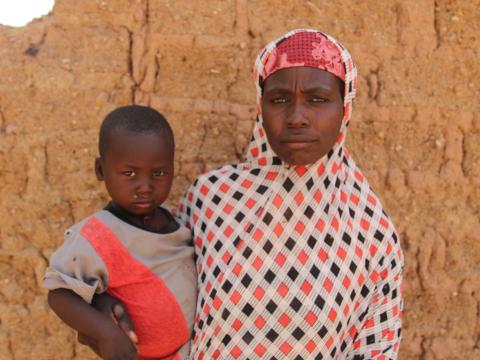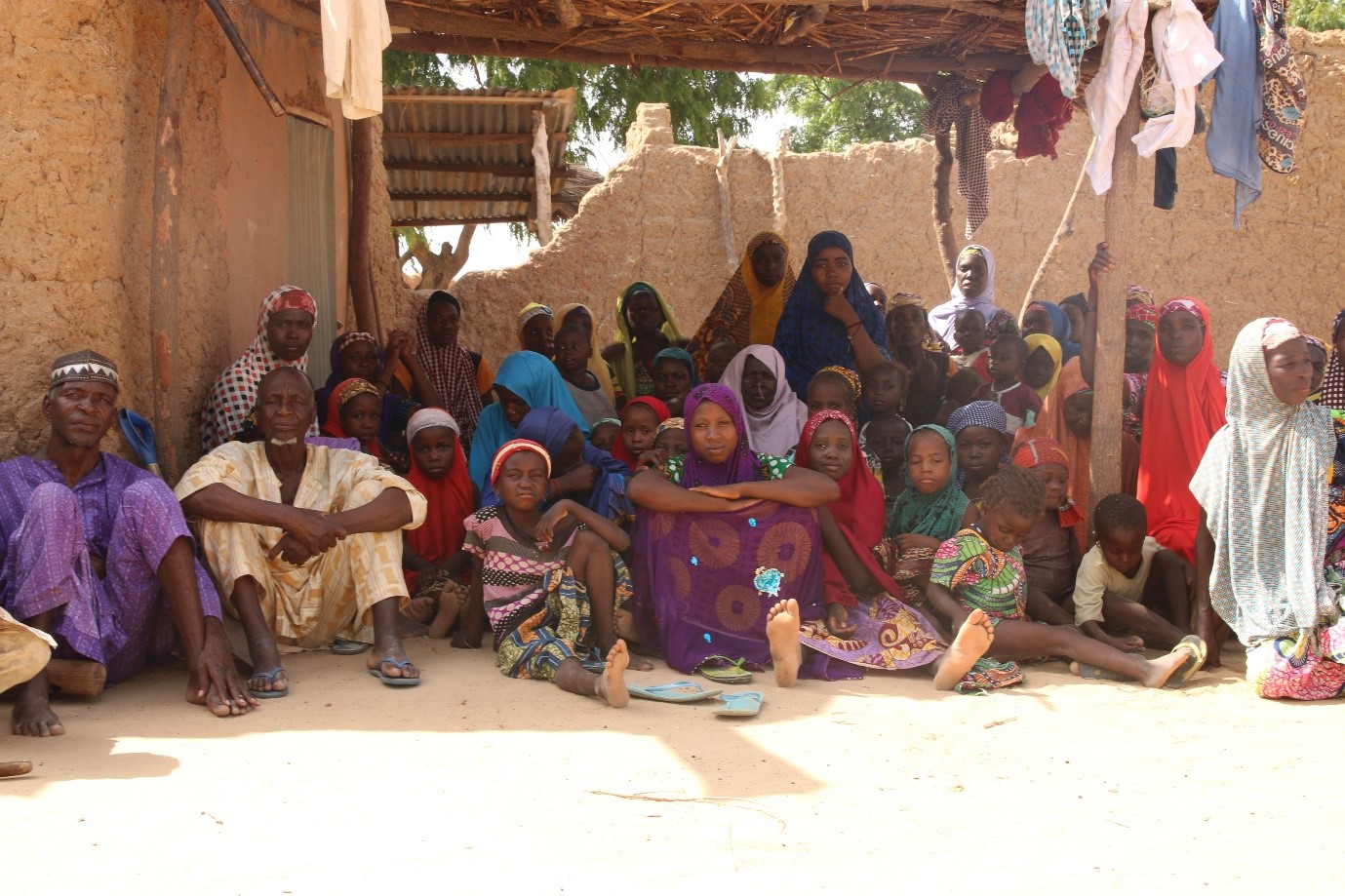Refugee Crisis in the Sahel - Escape for Peace

"There is nothing more hopeless than not knowing whether tomorrow your children will have something to eat or not," said Fatchima completely exasperated.
As mother and head of household, Fatchima is very concerned about the well-being of her children. She remembers her life when armed bandits attacked her small town. “It was a day like any other. I was doing the housework and my youngest boy, Mohamed, was playing on the floor. Suddenly, we heard a sound of particular motorcycles; we could tell that it was many motorcycles. So, I ran outside to find out what was going on. Then I saw more than forty motorcycles with three people on each and armed rifle. I cannot describe the feeling that took over me. I was so scared. The only thing I thought about was to protect my children,” she recalled.
Fatchima is from the village of Galoube – located in the northern part of Nigeria, near the border with Niger – where she lived all her life. “My life has always been peaceful in Galoube. There, we were not rich but I could provide the needs of my children,” she said.
In early May 2019, security incidents in the Nigerian states bordering the Maradi Region led several Nigerian nationals to cross the border to seek refuge in the villages of the department of Guidan-Roumji, Maradi. The number of refugees to date is estimated at nearly 50,000 and they brought nothing with them. “With my children, we walked more than 20 kilometers. Some of my children did not even have shoes and their clothes were torn. We left everything behind,” she said.
When Fatchima fled, she decided to settle in Eguidi about 20 kilometers away from her native village. "We opted for Eguidi because I am related to the village chief," she said. More than fifty people are lodged at the house of the village chief.

In order to cope with this massive number of migrants, World Vision Niger, through the Niger Refugee Emergency Response, launched in early July, has implemented various activities to assist displaced populations in collaboration with the Government of Niger and UNHCR. The Response aims to assist more than 1,200,000 people through various crises in the regions of Tillaberi, Tahoua, Maradi and Diffa.
Fatchima’s family was now facing a new reality, and none more so than young Mohamed. Fatchima remembers: “our first night in this village was not easy at all. Mohamed cried all night of hunger.” According to her, her neighbor devoted all his days to prayer so that her son would return to a normal life.
“I do not intend to return to Galoube. Here, I feel safer. We at least get to sleep peacefully” said Fatchima.